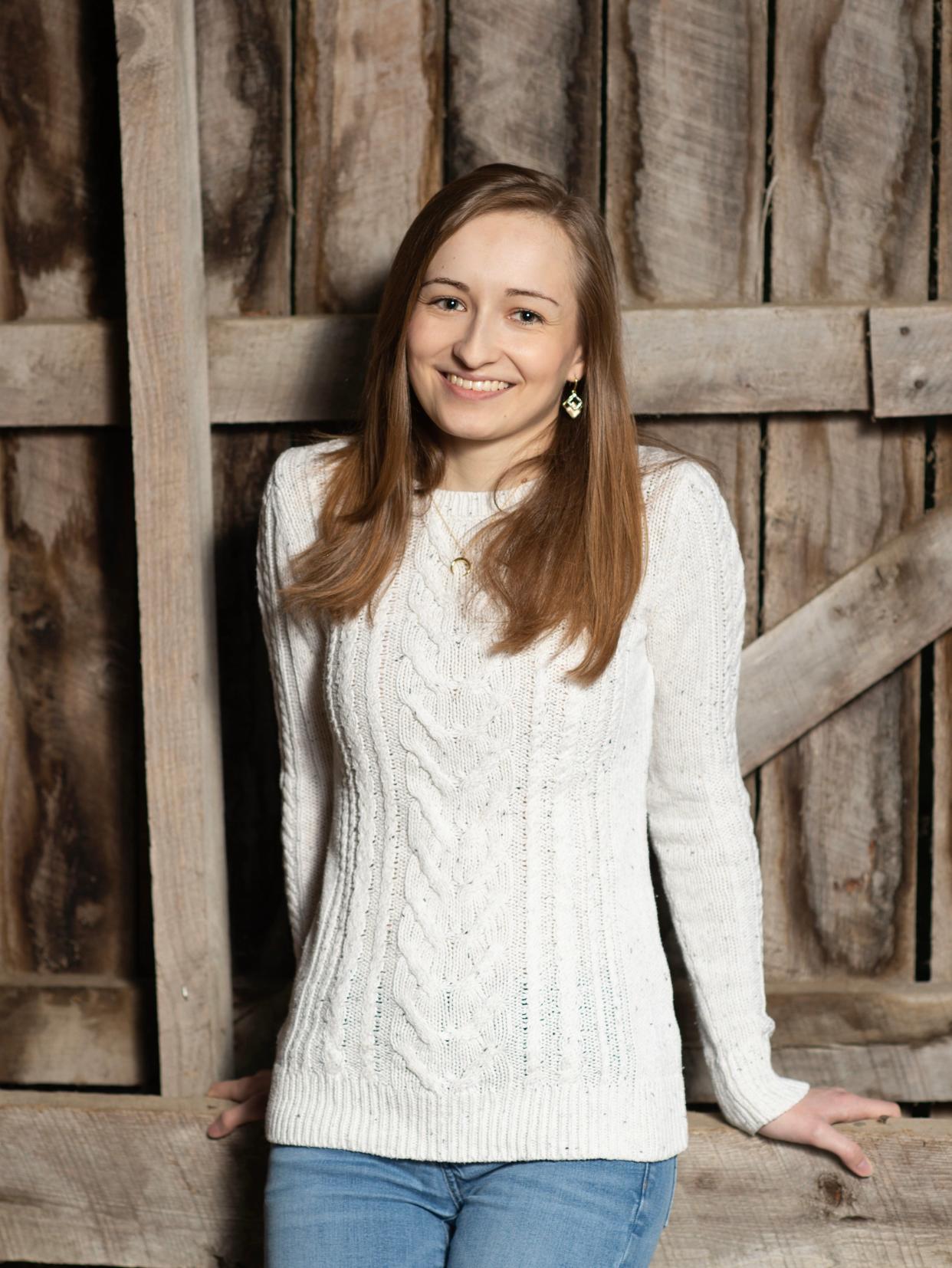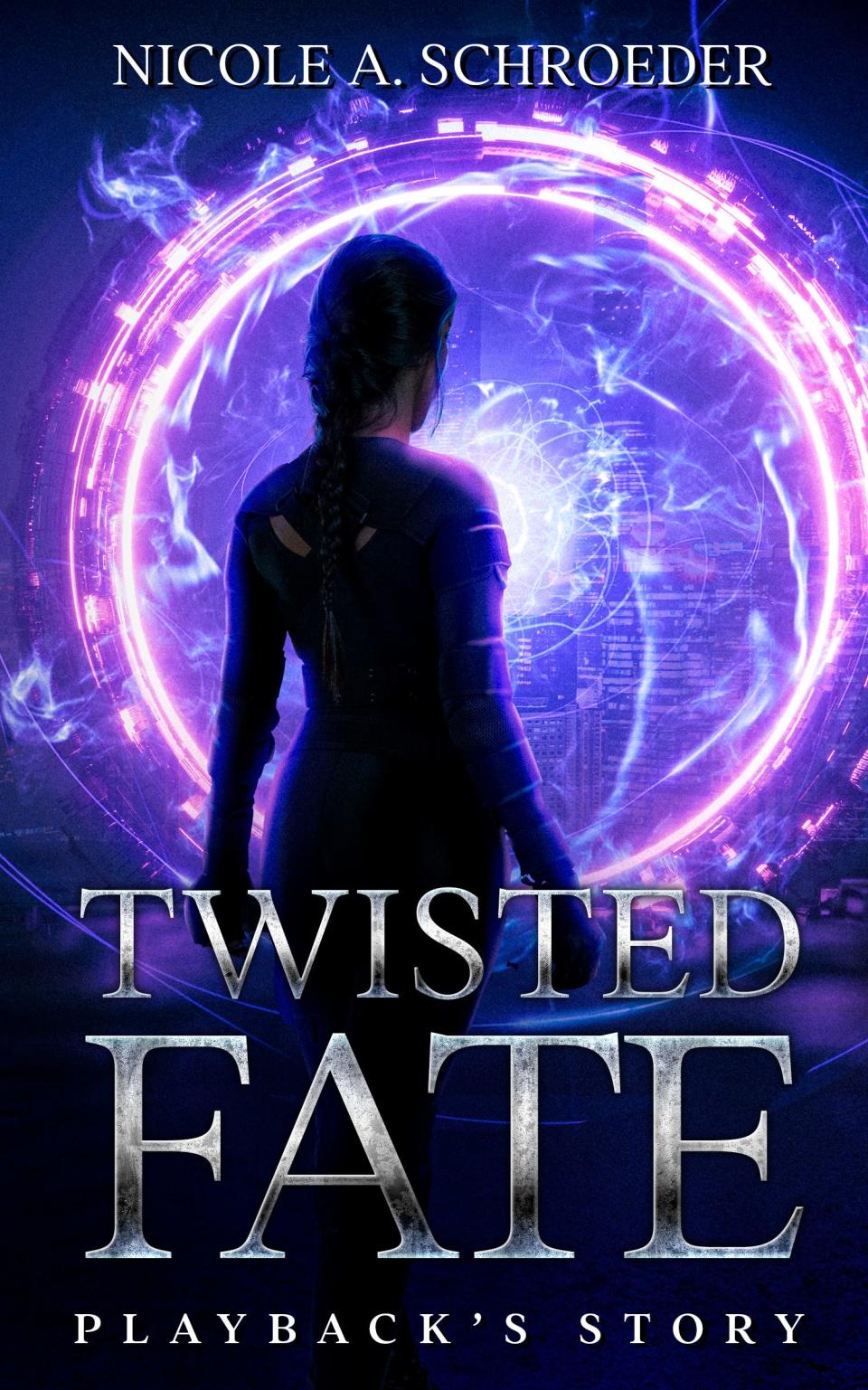With new YA novel, Columbia native Nicole Schroeder harnesses her literary powers

Nicole Schroeder is growing into her literary superpowers.
A Columbia native and University of Missouri School of Journalism graduate, her first YA novel "Twisted Fate: Playback's Story" entered the atmosphere this spring. What's more, the book is out on an imprint of Schroeder's own making, Lost Library Press.
The action revolves around Cassidy Sinclair, a freshman at Everett University, a fictionalized home of higher learning that resembles Schroeder's alma mater. After suffering an accident, Sinclair finds herself capable of reversing her every last decision. Learning to live with this power, she navigates what it means to make the world better — and what it means to choose at all.
Schroeder traded emails with the Tribune to discuss the nurturing effect of the local literary community, the sorts of stories she loves, and how Cassidy Sinclair's college experience does and doesn't mirror her own.
As you arrive at this landmark, publishing your first novel, what can you look back and see as far as the Columbia literary community’s influence on you to this point?
Schroeder: Having grown up in Columbia, it’s been amazing to be part of the literary sphere here and to experience the community’s celebrations of writing and books. When I was growing up, I remember participating in Daniel Boone Regional Library’s summer reading challenges in elementary school and tearing through books as quickly as I could, not necessarily for the prizes, but just because I loved getting to go back to the library when I finished one book so I could get another.
I also got to participate in writing programs put on by the university in junior high and high school, which were so great for meeting other writers and for reminding myself how much I loved storytelling. There was a weeklong creative writing program that the university used to put on during the summer for K-12 students, and it was probably one of my favorite “summer camps” I ever did.
And then, of course, when I got into college, I was in the downtown area a lot more and got to take creative writing classes at MU — I actually had a chance to take classes with both Alex George and Joe Chevalier, the owners of Skylark and Yellow Dog bookshops, respectively — and learn about Unbound Book Festival in the first few years it took place. It was just the perfect chance to connect with other writers and the best encouragement to keep up with my own writing.
More: How MU alum Jennifer Maritza McCauley carries 'Home' back to Columbia and Unbound festival
What are the benefits of creating your own imprint? What identity would you like Lost Library Press to have?
Schroeder: My day job is that of editor-in-chief at Indie Author Magazine, so I’m very lucky that I work with a community of authors who were so kind in encouraging me and mentoring me through the process of working on this book. But at a certain point, as I looked at the story I was telling, the market I was aiming for, and the story I want to be able to continue to tell with this series, I also realized that self-publishing made the most sense.
I love the idea of having control over the story I’m telling — not having to worry about compromising on certain elements of my story or my characters, and not giving up that creative input on things like the title and the cover.
Beyond that, as an independent author, I get to be part of every part of the process of bringing my books to life. I’m in charge of finding the cover artist, making the marketing and promotional plan, finding an editor, finding the distributor. It has been such a great experience as someone who has loved books and wanted to work in publishing for so many years.
As for Lost Library Press, I’ve always loved books and series where you can immerse yourself in the story and in the world. I hope my stories can do the same, whether they just offer people an escape for a few hours while they’re reading the book or stay with them for a lot longer after they’ve finished. The name “Lost Library” is a reference to the Library of Alexandria, but I also want the books I write to be the kinds of stories you can lose yourself in.
You’ve talked about threading your own experiences at MU through “Twisted Fate.” Did examining those experiences with a little distance, and recontextualizing them for the book, show you anything new about them or clarify anything about your college years?

Schroeder: Well, it’s only been three years since I graduated, and my younger siblings have also been at MU since then, so it doesn’t feel like I have that much distance from the university! But there was certainly a bit of nostalgia that came with revisiting my memories of freshman year for this book.
The most obvious examples that worked their way into the books, at least for me as I was writing it, were specific buildings on campus. The dorm that Cassidy lives in is meant to be the Mark Twain Residence Hall, where I lived during my freshman year, and the various classrooms and campus buildings she visits are all different combinations of buildings where I spent a lot of time as a student. Lee Hills Hall in real life became the physics building at Everett University, for example.
But beyond that, as I was writing the book, I really came to recognize just how innocent a lot of people are at that age, and the excitement and pressure of being an adult and on your own for the first time that I think a lot of people experience that first semester. Especially during freshman year, when a lot of us were still deciding our majors, figuring out how to balance our time, and figuring out what we wanted to do when we graduated, every decision we made felt so weighty and important. There’s a lot of that innocence that works its way into Cassidy’s character, where she approaches everything as if it will shape the rest of her life.
The difference of course is that, in the book, in Playback’s case, that might actually be true.
Who will readers encounter in Cassidy Sinclair? How do you think her personality will appeal especially to YA readers?
Schroeder: Cassidy Sinclair is a very optimistic, kind person who’s always looking for ways to help everyone, no matter the cost to herself. She’s very close with her friend group and leans on them for support in a lot of what she faces throughout the book, in the same way they rely on her at different points.
That said, she’s also rather shy. As Cassidy, she’s never really felt overly important, so putting on her mask and becoming Playback is a very new experience for her. She doesn’t even think to consider herself a hero until other people give her the title. In that sense, I hope younger people — but even adults — who have maybe experienced that same sense of searching for their place in the world will be able to relate to her.
I think we’ve all had that feeling at some point of being a misfit or feeling unsure of where we belong, and I hope readers will be able to connect with Cassidy’s journey as she tries to answer that question for herself.
More: MU graduate Sheryl Crow part of 2023 Rock & Roll Hall of Fame class
The book’s description casts Cassidy’s new “superpower” in a surprising light, showing that sometimes wish fulfillment isn’t all it’s cracked up to be. What do you think the book has to say about getting what we wished for and how we make our way through the world?
Schroeder: There’s definitely an unintentional theme of things not turning out the way you’d expect in the book, for sure! “Twisted Fate” really focuses on the choices we make in our daily lives and the impact they can have on the world around us.
Although Cassidy’s wish never really changes in the book — spoiler alert, she still wants to be a superhero by the end — I think her realization of what it asks of her is exactly in line with that. From the start, Cassidy approaches becoming a superhero and making the right call as an easy choice, which I think we all have probably done to some extent.
But there are plenty of times when doing what’s right isn’t a black-and-white decision, or it asks something of us in return. The pandemic was a great example of that. My younger brother is immunocompromised, and I had family and friends who were deeply affected by the pandemic.
One of the things I learned as a result of that was the importance of doing as much as we can to help people but also recognizing that, even if you do everything right, things can still go wrong — and it’s not necessarily your fault if they do.
A lot of this book was written during that period, so my experiences and emotions during that time shaped a lot of who Cassidy became and the lessons she had to learn about choices, selflessness, and what it truly means to do the right thing.
Aarik Danielsen is the features and culture editor for the Tribune. Contact him at adanielsen@columbiatribune.com or by calling 573-815-1731.
This article originally appeared on Columbia Daily Tribune: With YA novel, Columbia native Nicole Schroeder harnesses literary powers

